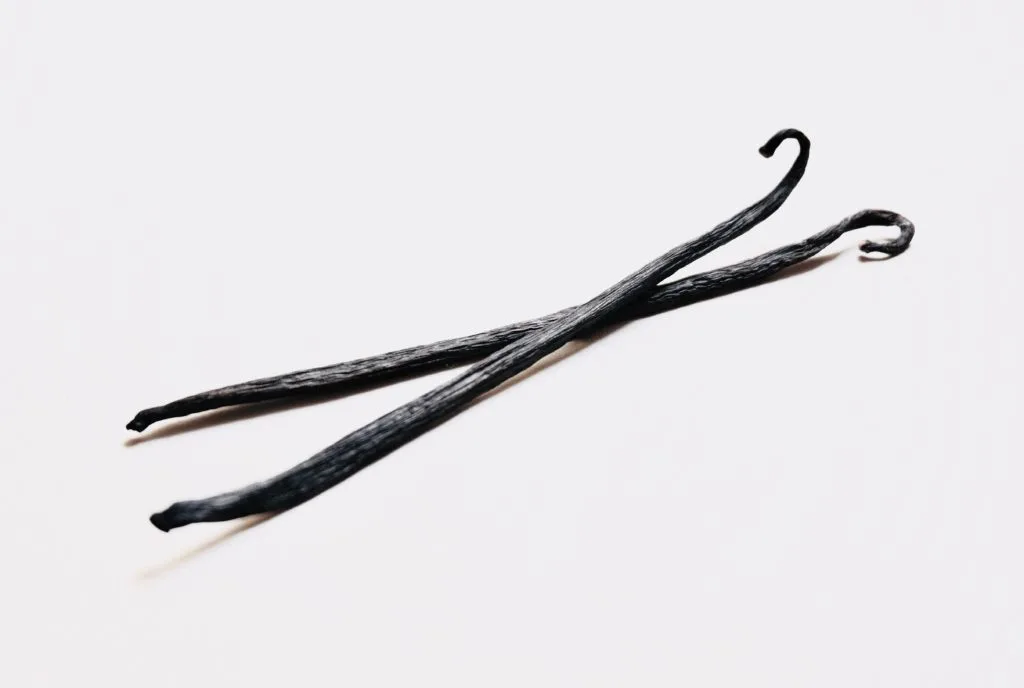Vanilla is, well, vanilla! You can’t go wrong with vanilla whatever dessert you’re making. It’s delicious, versatile and pretty much everyone likes vanilla! But given that it’s so popular we can’t help but wonder can dogs have vanilla too?
In this article, we’re going to take a look at the difference between real, natural vanilla, and the cheaper option vanilla extract. Besides this, we’re also going to answer the question can dogs have vanilla, and is vanilla safe for dogs.
Before we dive into answering all your vanilla-related questions, there are many other human foods we’ve analyzed as well. And we have also determined if they are safe for dogs or not:
- Can dogs have gummy bears?
- Pretzels: Can dogs eat them? What to know
- Can dogs eat Skittles: Here’s the truth
- Twizzlers: Can dogs eat them or are they toxic?
- Can dogs eat Goldfish crackers?
- Is caramel safe for dogs? Can dogs eat caramel?
Can dogs have vanilla?
To answer this question we first need to make the distinction between natural vanilla, and the more popular (and cheaper) vanilla extract.
Natural vanilla
What is vanilla? Well, according to Wikipedia vanilla is a spice derived from orchids of the genus of the same name. The plant part that is used to make our beloved vanilla flavor is the pod, or also called the bean.
ALSO READ Is eucalyptus oil safe for dogs?
When you harvest vanilla beans they need to be dried. This process of drying takes quite some time, but after it is done, the vanilla beans can be used in different ways. The most natural vanilla flavor you will get from vanilla beans.

Vanilla beans are long and thin. Every vanilla pod contains thousands of tiny seeds that are scraped out of the pod and used as natural flavoring.
Now, this natural flavoring is safe for your dog. If your dog ate a vanilla bean it’s not very likely that something would happen to them.
ALSO READ Can dogs eat olives? What you should know
However, the problem is vanilla extract, and we’re going to explain why.
Vanilla extract
Vanilla extract is not really natural vanilla flavor. Let’s take a look at what is actually in the store-bought vanilla extract:
- Vanilla beans
- Alcohol
- Sugar
- Food coloring
- Sodium benzoate
- Propylene glycol
As you can see, the vanilla extract contains a lot more than just vanilla. And where do we start stating what can potentially be dangerous for your dog?
Obviously, alcohol is the biggest issue here. Basically, alcohol is what makes vanilla taste richer. This means that the vanilla beans get drenched in alcohol for a few weeks for the flavors to come out, then they are processed.
ALSO READ What Happens If A Dog Eats Chocolate?
The problem with alcohol is that your dog can’t break it down their system. This means your beloved canine is at a very high risk for alcohol poisoning if they consume the vanilla extract. Of course, there are also alcohol-free vanilla extracts. For that vanilla extract, manufacturers use vegetable glycerin, which is safe for dogs.
If your dog consumes vanilla extract (with alcohol) you want to look out for the following symptoms:
- Vomiting
- Diarrhea
- Problems coordinating movement
- Problems breathing
Conslucion
In conclusion, can dogs have vanilla? Yes, if it’s real, natural, vanilla flavor like from vanilla beans! This version of vanilla is safe for your canine.
However, vanilla extract, which many people usually use, is a whole different story. Because vanilla extract is made out of more ingredients than just vanilla beans, specifically alcohol, it’s not safe for dogs.
Lastly, there is basically no real reason why you would give your dog vanilla. It doesn’t contain anything beneficial for their health nor is it nutritional.

